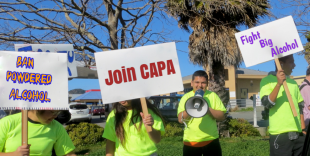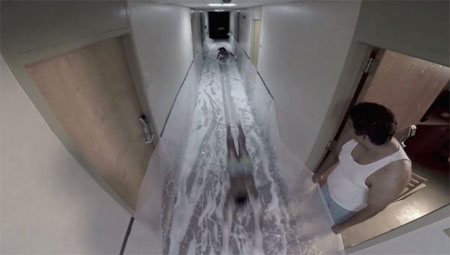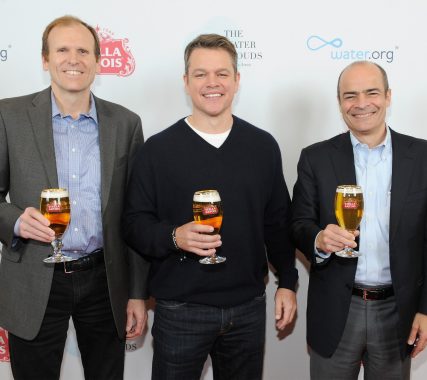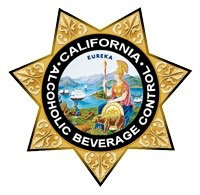Blog
New Book Highlights Community Efforts to Prevent Harm
- Details
- Created: Wednesday, January 31 2018 01:11
 Alcohol control remains one of the most pressing public health projects of our time. It is complicated by a wealthy alcohol industry that wields tremendous social, political, and economic clout. Still, there have been some victories. Alcohol Justice Executive Director/CEO Bruce Lee Livingston and Advocacy Manager Director Jorge Castillo have been asked to recount a few of theirs in the new book, Preventing Alcohol-Related Problems: Evidence and Community-Based Initiatives, out now from APHA Press.
Alcohol control remains one of the most pressing public health projects of our time. It is complicated by a wealthy alcohol industry that wields tremendous social, political, and economic clout. Still, there have been some victories. Alcohol Justice Executive Director/CEO Bruce Lee Livingston and Advocacy Manager Director Jorge Castillo have been asked to recount a few of theirs in the new book, Preventing Alcohol-Related Problems: Evidence and Community-Based Initiatives, out now from APHA Press.
The book pairs research essays with case studies of successful prevention campaigns throughout the Unite States. To illustrate strategies to counter alcohol industry marketing, Livingston details Alcohol Justice’s campaign to remove alcohol ads from public transit in several cities in California. Castillo recounts a Friday Night Live campaign to restrict alcopop sales in Richmond, CA. Their chapters are alongside contributions from preeminent researchers and community advocates addressing critical topics in reducing harm including violence, service, age restrictions, disparities, and treatment, among others.
"Looking at everyone who pitched in to this book and all those successful projects across the country really reminds you that yes, local communities can win fights against Big Alcohol,” said Castillo.
Preventing Alcohol-Related Problems is available through the APHA store. Alcohol Justice contributors do not receive remuneration from sales of the book.
READ MORE about alcopops’ effects on youth.
READ MORE about how to get alcohol advertising off of public transit.
On Super Bowl Sunday, AB InBev Goes for a Two-Point Bad Ad Play
- Details
- Created: Wednesday, January 31 2018 01:00
 2/7/18: Water.org reassured us that Stella makes no profit from the sales of Water.org chalices. We have updated the text of the post to reflect this.
2/7/18: Water.org reassured us that Stella makes no profit from the sales of Water.org chalices. We have updated the text of the post to reflect this.
As the United States prepares for Super Bowl LII, AB InBev prepares to leverage American hardship to sell more booze. The megabrewer, which holds exclusive beer advertising rights for the event, intends to push two of its brands using charity—hiding the destructive effects of alcohol behind heavily branded interventions in domestic and international tragedy.
This is not a new tactic for Big Alcohol. Many booze manufacturers like to push “pink ribbon” campaigns that raise nominal amounts for breast cancer charities, while providing thousands of dollars of publicity for the brand—and masking the very real role alcohol use plays in breast cancer risk.
In AB InBev’s case, however, the equation is complicated by its status as a megabrewer. It is running campaigns for at least five different sub-brands during the Super Bowl, from the goofy medieval “Dilly, Dilly” ads that target youth to superhero actor Chris Pratt’s turn in the more fitness-oriented Michelob Ultra spots (that, um, also target youth). That makes the ostensible corporate altruism permeating the ads for Stella Artois and Natural Ice all the more cynical.
The Stella Artois campaign, “Buy a Lady a Drink,” raises money for actor Matt Damon’s water.org, which provides safe drinking water in the developing world. This is a laudable goal, and were Stella to simply pay to advertise for water.org and urge Super Bowl viewers to donate, it would be an act of true philanthropy.
However, Stella does not solicit donations, nor does it direct kind-hearted individuals to a donation page. Instead it urges viewers to buy branded “chalices” (possibly some synergy with the not-at-all philanthropic Bud Light monarchy), with a cut from each sale going to the charity. Not only does this mean that the self-evident way to get involved is to submit to Stella’s marketing, the overall cost of creating and advertising the chalices--never mind buying the Super Bowl ad time--likely overshadows the revenue raised by their sales. Simply delivering the money upfront to water.org without the junk branded glassware or earnest monologues would be more efficient and more effective.
It would also prevent AB InBev from generating a smokescreen for their global marketing strategy: increase alcohol consumption in lower- and lower-middle income countries. Alcohol-related harm and death is a real and growing problem in the developing world, and Matt Damon is complicit—delivering the residents of poverty impacted countries from the dangers of untreated water only to turn them over to global alcohol giants.
 "The nature of Big Alcohol is to sell more alcohol to more people," said Carson Benowitz-Fredericks, Research Manager for Alcohol Justice. "So when you think of them making a profit--even a tiny one--off these beer glasses, and then plowing that right back into higher rates of drinking, it starts to seem a bit like blankets full of smallpox."
"The nature of Big Alcohol is to sell more alcohol to more people," said Carson Benowitz-Fredericks, Research Manager for Alcohol Justice. "So when you think of them making a profit--even a tiny one--off these beer glasses, and then plowing that right back into higher rates of drinking, it starts to seem a bit like blankets full of smallpox."
For evidence of what harms the alcohol companies can do when unchecked and able to deliver mass quantities of product at low price points, look no further than… college. Binge drinking is epidemic; 20% of college students may have an alcohol use disorder, and 2/3s of those who drank in the past month binge drank. Most importantly, the majority of college students are under the legal drinking age of 21. AB InBev’s Natural Ice and Natural Light have a large following on college campuses for being cheap, relatively high ABV, and readily available in large cases. AB InBev is well aware of this; it has even launched a side line of flavored malt beverages named Natty Rush, appropriating the collegiate nickname.
For this NFL trophy game, Natural Light is offering to cover some students’ outstanding loans, with a catch: anyone “applying” for this boon has to make a video featuring the product. The offer itself is presented through a vaguely nostalgic ad featuring an in-dorm slip-n-slide—dorms, of course, being where students tend to live in their first few years in school. Not content for Sunday's young-eye bonanza, AB InBev is shamelessly cementing its bargain-basement product as the go-to for underage drinking.
“Big Alcohol gets away with voluntary regulations and claims they are always doing the right thing,” stated Michael Scippa, Director of Public Affairs for Alcohol Justice. “But then they go on the world’s largest televised stage and tell people the best times of their lives came from underage drinking. When they say they want to do good, it’s impossible to take them seriously.”
Given the access to young eyes, the ongoing issues with booze and the NFL, and the international efforts to push back against Big Alcohol’s stranglehold on athletics, it’s long past time AB InBev got out of the Super Bowl. If it wanted to make a positive change, it could donate out of the goodness of its heart—not the effectiveness of its marketing.
READ MORE about getting AB InBev out of our sports.
WATCH the youth-written, youth-directed Free Our Sports videos.
California ABC: Thou Shalt Not Mix Thy Weed and Alcohol
- Details
- Created: Friday, January 26 2018 00:13
 As the first year of legal marijuana sales in California gets under way, California Alcoholic Beverage Control has moved to quickly to clarify the ways in which alcohol and marijuana should mix-that is, not at all.
As the first year of legal marijuana sales in California gets under way, California Alcoholic Beverage Control has moved to quickly to clarify the ways in which alcohol and marijuana should mix-that is, not at all.
In a new industry advisory aimed at alcohol license holders, the department has provided a little early mythbusting around the idea of combined alcohol-marijuana business ventures. Although many would-be entrepreneurs leapt to declare intentions to create marijuana infused booze, or to conduct marijuana-and-wine pairings, these are strictly verboten under the law as currently constructed. As ABC reminds, the Medicinal and Adult-Use Cannabis Regulations and Safety Act prohibits stores from selling alcohol and/or tobacco in the same location as marijuana products.
That means no:
- cannabis dispensing at bars
- roving sellers at nightclubs
- pairings of alcohol and marijuana
- cannabis-infused beverages (since by definition, a cannabis-and-alcohol beverage would be cannabis sold in the same place as alcohol!)
In addition, ABC specifies that there can't be "pass-throughs," where a dispensary is at the back of a bar.
"These are common-sense regulations. Legal cannabis shouldn't be used just to tighten Big Alcohol's stranglehold on California," said Bruce Lee Livingston, CEO/Executive Director of Alcohol Justice.
For questions or more information, go to http://abc.ca.gov.
READ MORE about how California must not make the same mistakes with marijuana regulation as it did with alcohol.More Articles ...
Subcategories
Help us hold Big Alcohol accountable for the harm its products cause.
| GET ACTION ALERTS AND eNEWS |
STAY CONNECTED    |
CONTACT US 24 Belvedere St. San Rafael, CA 94901 415-456-5692 |
SUPPORT US Terms of Service & Privacy Policy |


